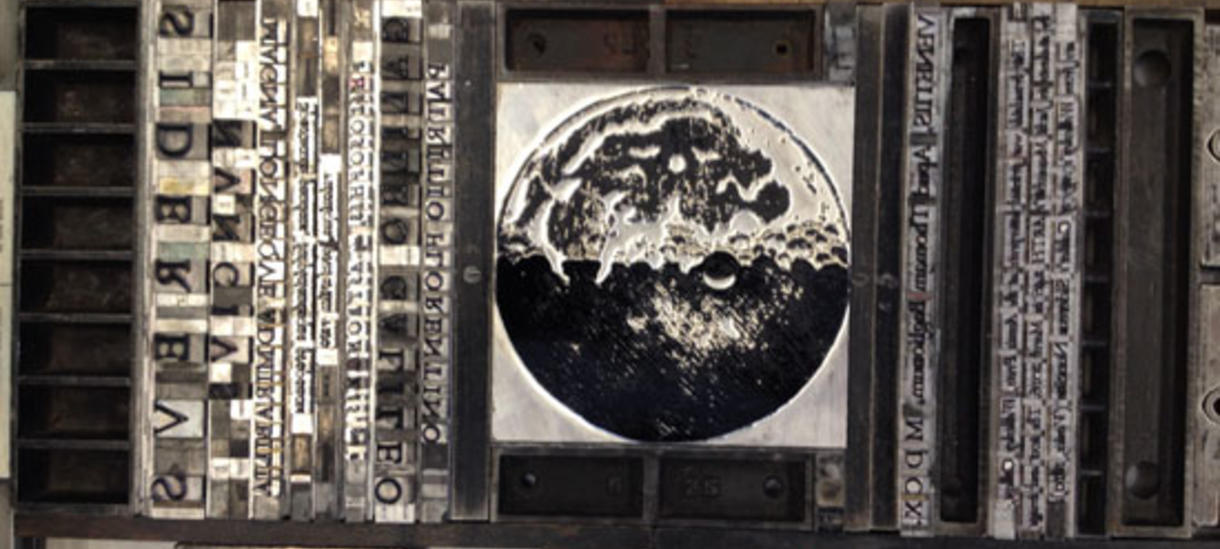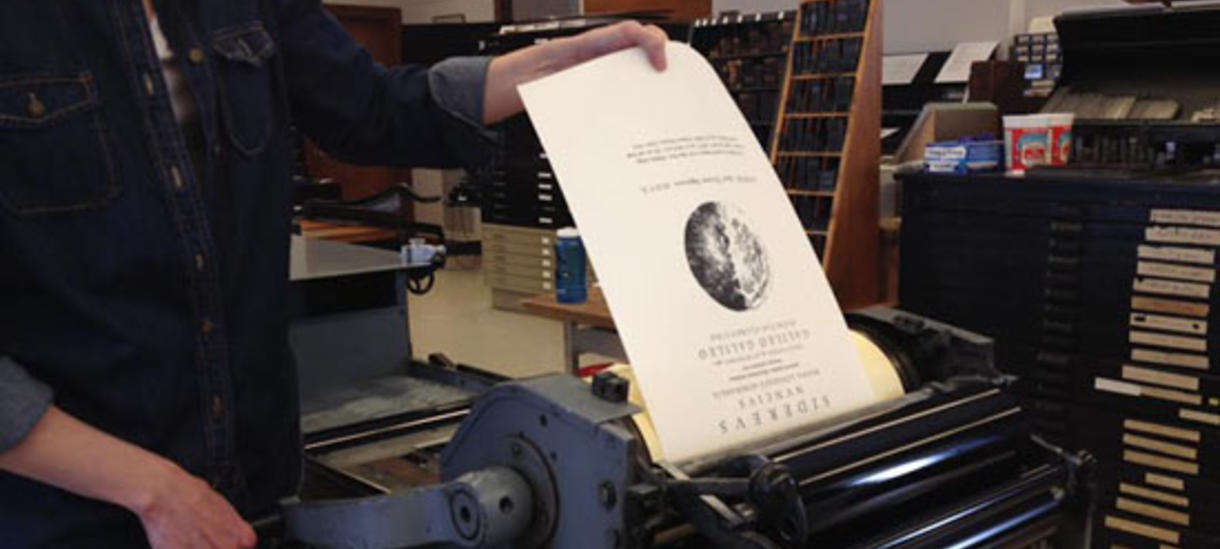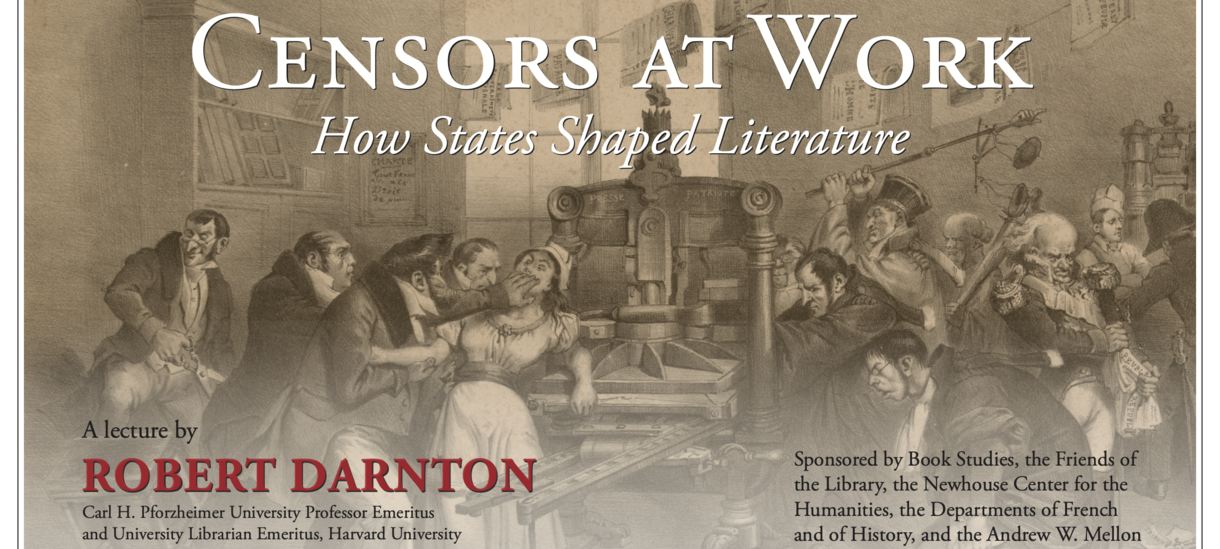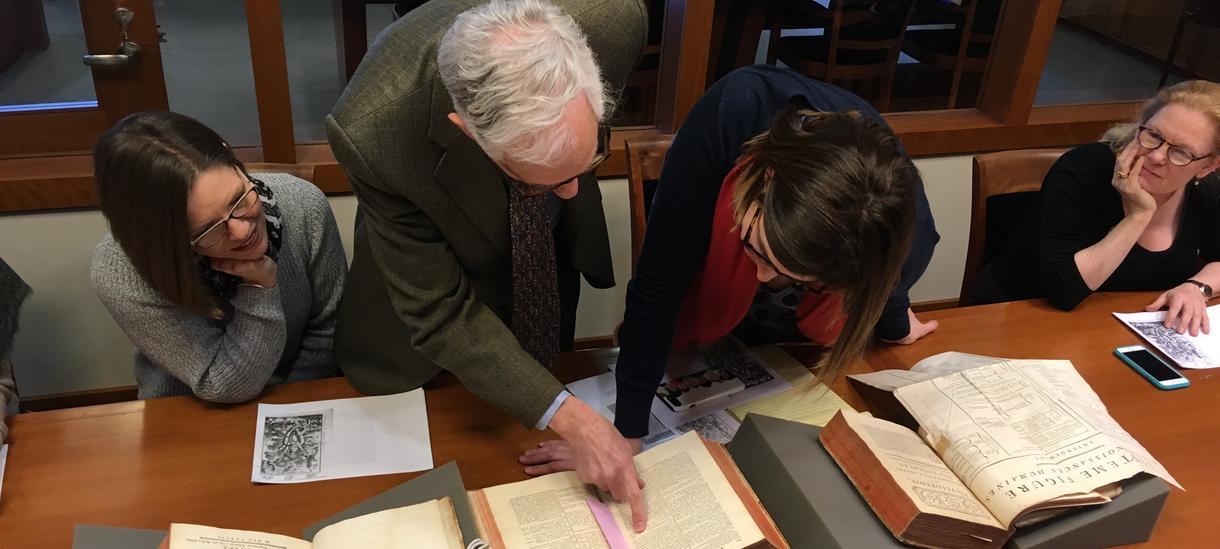
Printing the Galileo broadside

Printing the Galileo broadside

Robert Darnton, "Censors at Work"

Robert Darnton at Special Collections, 2019
The Wellesley College website is currently in transition. This temporary site is for current Wellesley College community members. If you're a prospective student or employee, please go to our new site at www.wellesley.edu.
Things We Are Working On
Censors at Work: How States Shaped Literature. A Lecture by Robert Darnton, Carl H. Pforzheimer University Professor Emeritus and University Librarian Emeritus. Library Lecture Room, Clapp Library. March 5, 2019 at 4:30 pm.
The difficulty with the history of censorship is that it looks so simple: it pits oppression against freedom of expression. But if one looks harder, it appears more complicated—and full of surprises. How did censors actually do their work? How did they understand it? And how did it fit into the surrounding social and political context? By studying the day-to-day operations of censors under three authoritarian regimes—Bourbon France in the eighteenth century, British India in the nineteenth century, and Communist East Germany in the twentieth century—it is possible to rethink our understanding of censorship in general.
Sponsored by Book Studies, the Friends of the Library, The Suzy Newhouse Center for the Humanities, The Departments of French and of History, and the Andrew W. Mellon Society of the Fellows of Critical Bibliography.
Folger Shakespeare Library Transcribe-A-Thon. Pendleton Knapp Atrium, Wednesday, March 8, 2017 from 12:30-5:30 pm. Heather Wolfe, Curator of Manuscripts at the Folger Shakespeare Library and Paul Dingman, Project Manager for Early Modern Manuscripts Online (EMMO). Sponsored by the Andrew W. Mellon Blended Learning Initiative and the Baum Fund.
Collaborate with experts to transcribe an early modern manuscript. See video here.
Experts from the Folger Shakespeare Library’s Early Modern Manuscripts Online project will be on hand to introduce participants to the art of transcribing English manuscripts from the sixteenth and seventeenth centuries--the age of Shakespeare, Jonson, Spenser, and Dryden using an online transcription platform called Dromio.
Tangled Texts in Early Modern England. A Lecture by Heather Wolfe, Curator of Manuscripts at the Folger Shakespeare Library. Founders 120, Tuesday, March 7, 2017, 4:15 pm.
A lecture about the interplay between manuscript and print and between text and image in Renaissance England, and on the continuity between early modern multimedia and the way we consume text and image today.
Heather Wolfe is an accomplished paleographer and author of numerous articles on early modern manuscripts. She has edited The Literary Career and Legacy of Elizabeth Cary, 1613-1680 (2007), The Trevelyon Miscellany of 1608: A Facsimile Edition of Folger Shakespeare Library MS V.b.232 (2007), and Elizabeth Cary, Lady Falkland: Life and Letters (2001). Dr. Wolfe and her work were recently featured in articles in The Guardian, The Wall St. Journal, and The New York Times.
Sponsored by the Andrew W. Mellon Blended Learning Initiative and the Committee on Lectures and Cultural Events (The Baum Fund).
Broadside Inspired by Galileo's Siderius Nuncius. In March 2016, Professor of Art Jacki Musacchio and the students in her ARTH 246 seminar "Collectors, Saints, and Cheese Eaters in Baroque Italy" printed a collaborative broadside based on Special Collections' copy of Galileo's Siderius Nuncius. Working with Katherine M. Ruffin, Book Studies and Book Arts Program Director, the class printed a limited edition broadside from hand-set metal type and a magnesium engraving using the Vandercook SP-15 press in the Book Arts Lab. This is the most recent limited edition broadside in a series that Professor Musacchio began with the Annis Press, the Book Arts Lab imprint, in 2011.
Nick Wilding, Associate Professor of History, Georgia State University, "Forging the Moon; Or, How to Spot a Fake Galileo," Wednesday, February 3, 2016, 12:30 pm, Science Center 277. Co-sponsored by Book Studies, the CLCE's Edwards Fund, and the Science Center.
Here is a video of Dr. Wilding’s lecture.
The integrity of the historical record is a prime concern for any historian. It follows that the art of detecting forgeries is crucial to our craft. Early modern print materials have generally been held above suspicion as a technologically impossible, or at least unprofitable, subject for forgery. But the emergence in 2005 of a spectacular copy of Galileo's cosmos-changing Siderius Nuncius, furnished with an autograph inscription and hand-drawn lunar illustrations, forced a reconsideration of this assumption. By reconstructing the recent history of the analysis of this single and singular object, Professor Wilding shows how, when viewed from different perspectives, within shifting contexts, and alongside a choice of control copies, a seemingly rigorous and secure authentication can gradually lose its certainty and eventually become proof of forgery.
Latin 302: Roman Poems and Poetry Books collaborates with Special Collections and the Book Arts Lab. In the fall of 2015, Latin 302 encountered ancient papyri, made and wrote on their own papyrus sheets, and connected ancient reading mannerisms to modern artists' books. Click here to see photos and learn more.
Art History 299: History of the Book from Manuscript to Print creates its own laser block. In the spring of 2015, Art History 299 had a series of classes in the Book Arts lab, where they experimented with various presses, designs, and methods to create their own prints. Click here to view a video of their work and learn more.
Faculty Seminars
"Teaching with Books and Other Text Technologies"
Faculty Seminar - January 14-16, 2014
Click Here for Article in Friends of the Library Newsletter
"Teaching with Books and Other Text Technologies: Book History, the Book Arts, and Book Studies in the Wellesley Curriculum"
Faculty Seminar - June 4-6, 2012
Click Here for Article on the LTS Rare Blog